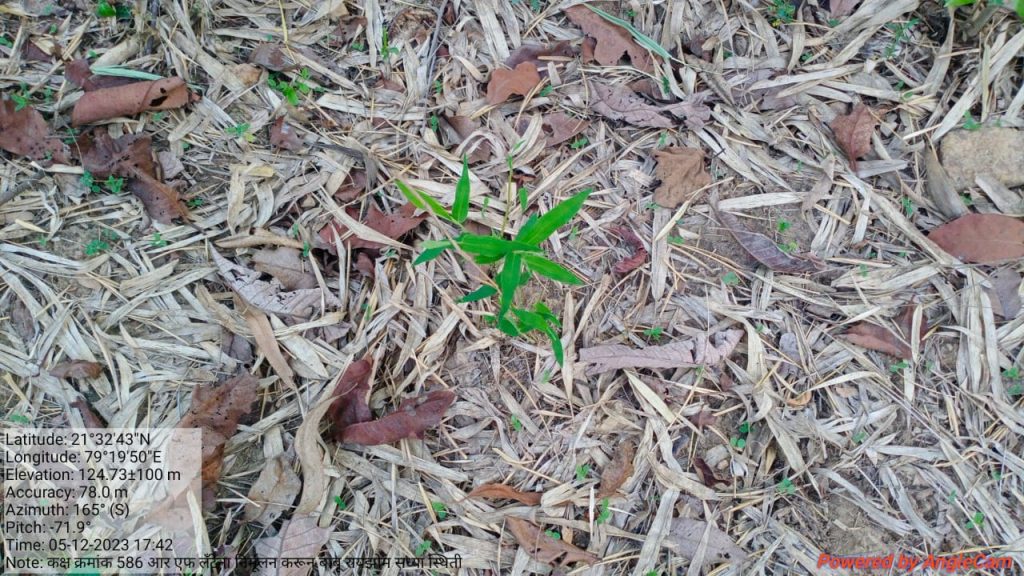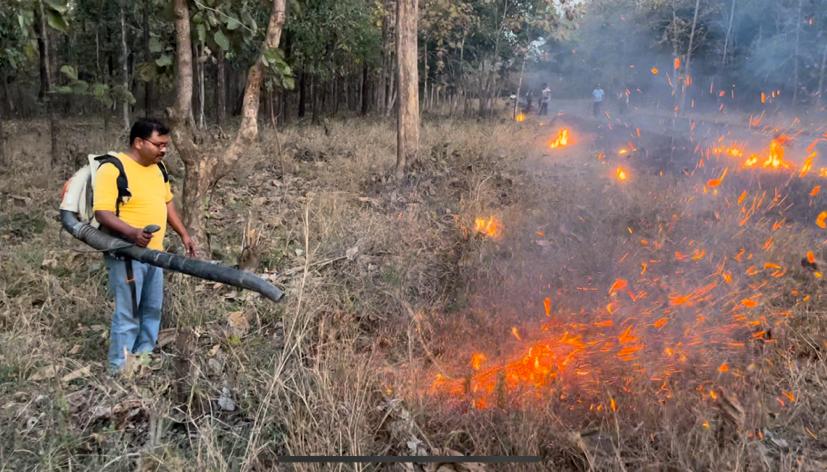Ground flora of many parts of the Pench, Maharashtra, is dominated by Lantana (Lantana camara) and Ran Tulus (Hyptis suaveolens). These plants trigger changes in ecosystem structure, functioning, and composition, significantly reducing native species diversity. It creates modified ecosystems that produce limited ecosystem services. At the ecosystem level, their impact includes changes to soil properties, hydrology, and fire regimes. This invasion has resulted in the scarcity of native forage plants for wild herbivores. If eaten, the leaves can induce allergies in the muzzles of animals.
It has prompted the tiger reserve to take up weed eradication work on a large scale. Due to their propagation from the rootstock, and recalcitrant seeds, they tend to come up in the areas again if areas have not been augmented with natural flora.
With the support of the ICICI foundation, Pench has taken the first time dibbling of the rhizome in the 200-hectare forest areas which had been earlier cleared from Lantana. Now, after the rain, rhizomes have started coming well.
In a unique arrangement, Pench is undertaking fruit plantations in several forest patches vacated from encroachment with support from EDCs (Eco-development Committees). Financial support for these plantations is being provided by the ICICI Foundation. The foundation has provided 35 Fire blowers and 55 solar water pumps to help the reserve in navigating through the summer season. Besides, ICICI Foundation has provided the reserve with one rescue vehicle.
Aimed at enhancing the livelihood and overall development of the buffer villages, 19,500 horticulture plants, 300 kitchen gardens, rainwater harvesting at 13 sites, 22 solar electric generation systems at schools, and four oil and pulse mills have been provided with their support.

👉 Click here to read the latest Gujarat news on TheLiveAhmedabad.com



